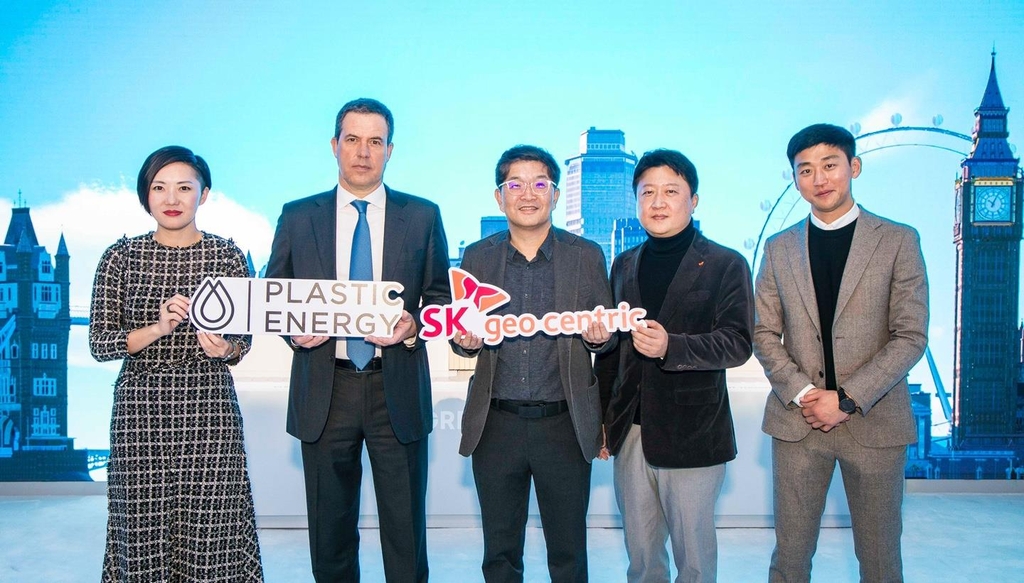By Kim Seung-yeon
LAS VEGAS, Jan. 8 (Yonhap) — SK Geocentric Co., a South Korean chemical company, said Sunday it has signed a contract with a British firm to build a plastic pyrolysis plant in South Korea, taking a step closer to establishing what will be the world’s first plastic recycling cluster in two years.
Under the agreement, SK Geocentric will gain access to the pyrolysis technology owned by Plastic Energy Ltd., which will help expedite the plan to build the plant with an annual 66,000-ton processing capacity in the South Korean industrial city of Ulsan, about 300 kilometers southeast of Seoul, the Seoul-based company said.
Pyrolysis refers to a technology that converts plastic waste into raw materials, such as oil and gas, to be reused as feedstock for new plastics.
The process is considered environmentally friendly, as it takes high-temperature heating for the chemical degradation in an environment with limited oxygen, instead of burning the waste.
The signing took place on the sidelines of CES 2023, taking place in Las Vegas this week, attended by SK Geocentric CEO Na Kyung-soo and Bruno Guillon, chief commercial officer of Plastic Energy.
“It is very meaningful to have secured the key technology for recycling plastic, which can contribute to greenness and carbon reduction at CES 2023, a competition for cutting-edge technologies,” Na said.
“SK Geocentric is leading the way building a greener and more sustainable business model for this industry in Asia. We are very pleased to join them on this important journey,” Guillon said.
SK Geocentric will start the construction of the plant this year. It also plans to refine its pyrolysis oil by creating a post-treatment plant that implements its own petrochemical processing technologies.
The two companies also signed a memorandum of understanding to work on setting up a joint venture to expand the plastic recycling business across Asia.
Plastic Energy has a patented technology that recycles plastics that cannot normally be mechanically recycled. It converts them into a feedstock called TAC oil, which heats post-consumer plastic waste in the absence of oxygen.

SK Geocentric CEO Na Kyung-soo (C) and Bruno Guillon (2nd from L), chief commercial officer of Plastic Energy Ltd., pose for a photo with other company officials during a signing of a license contract to build a plastic recycling pyrolysis plant in South Korea, on the sidelines of CES 2023 in Las Vegas, in this photo provided by SK Geocentric on Jan. 8, 2023. (PHOTO NOT FOR SALE) (Yonhap)
elly@yna.co.kr
